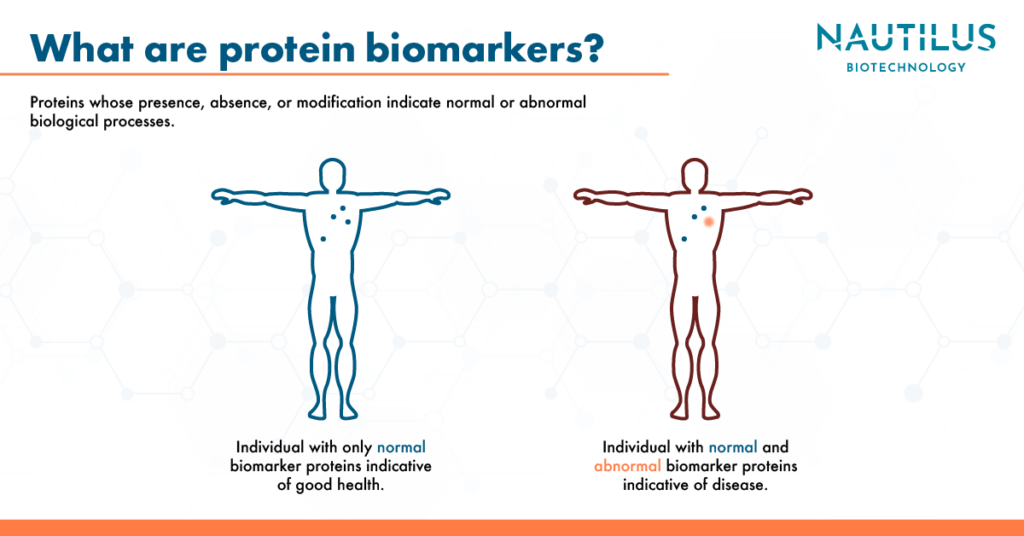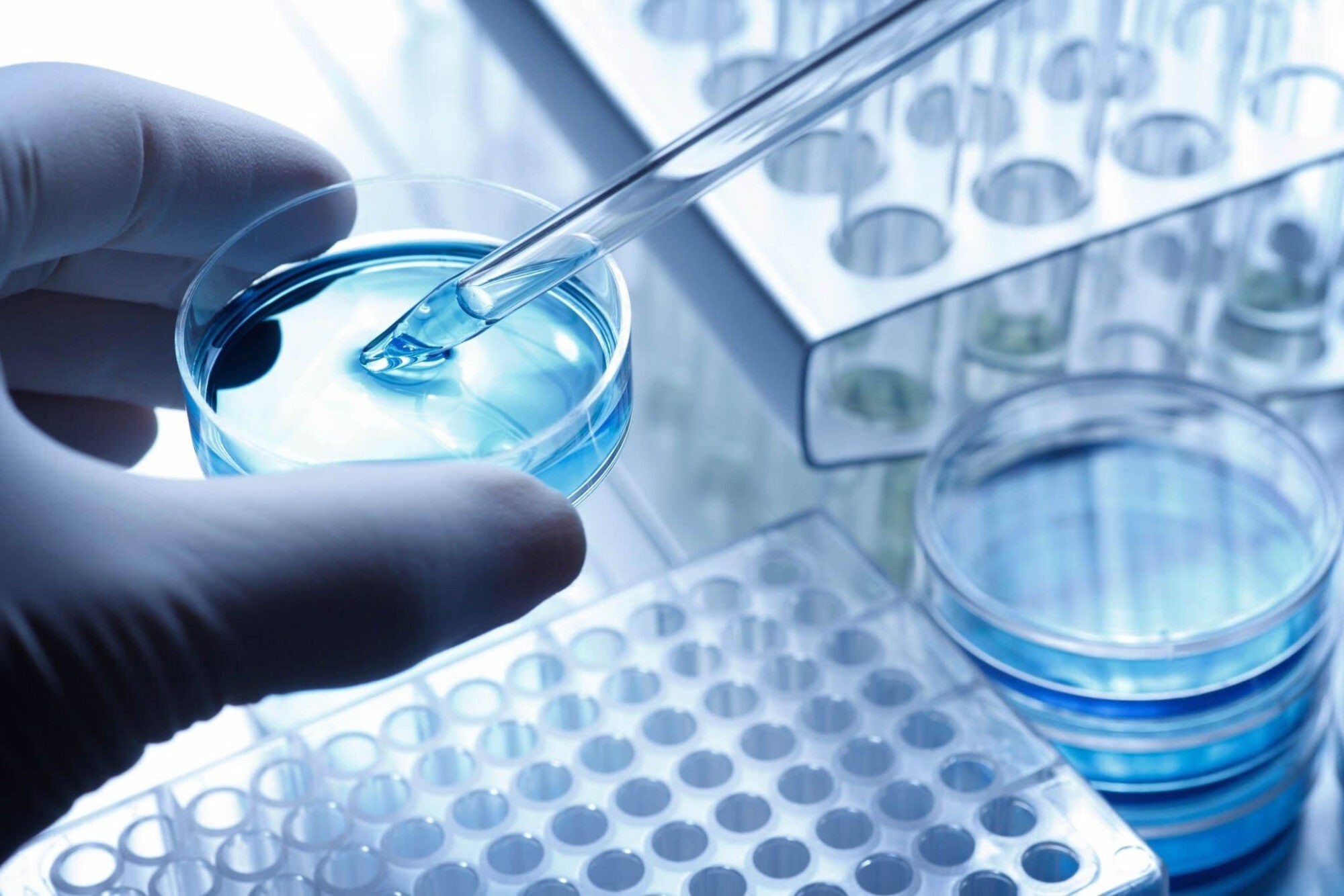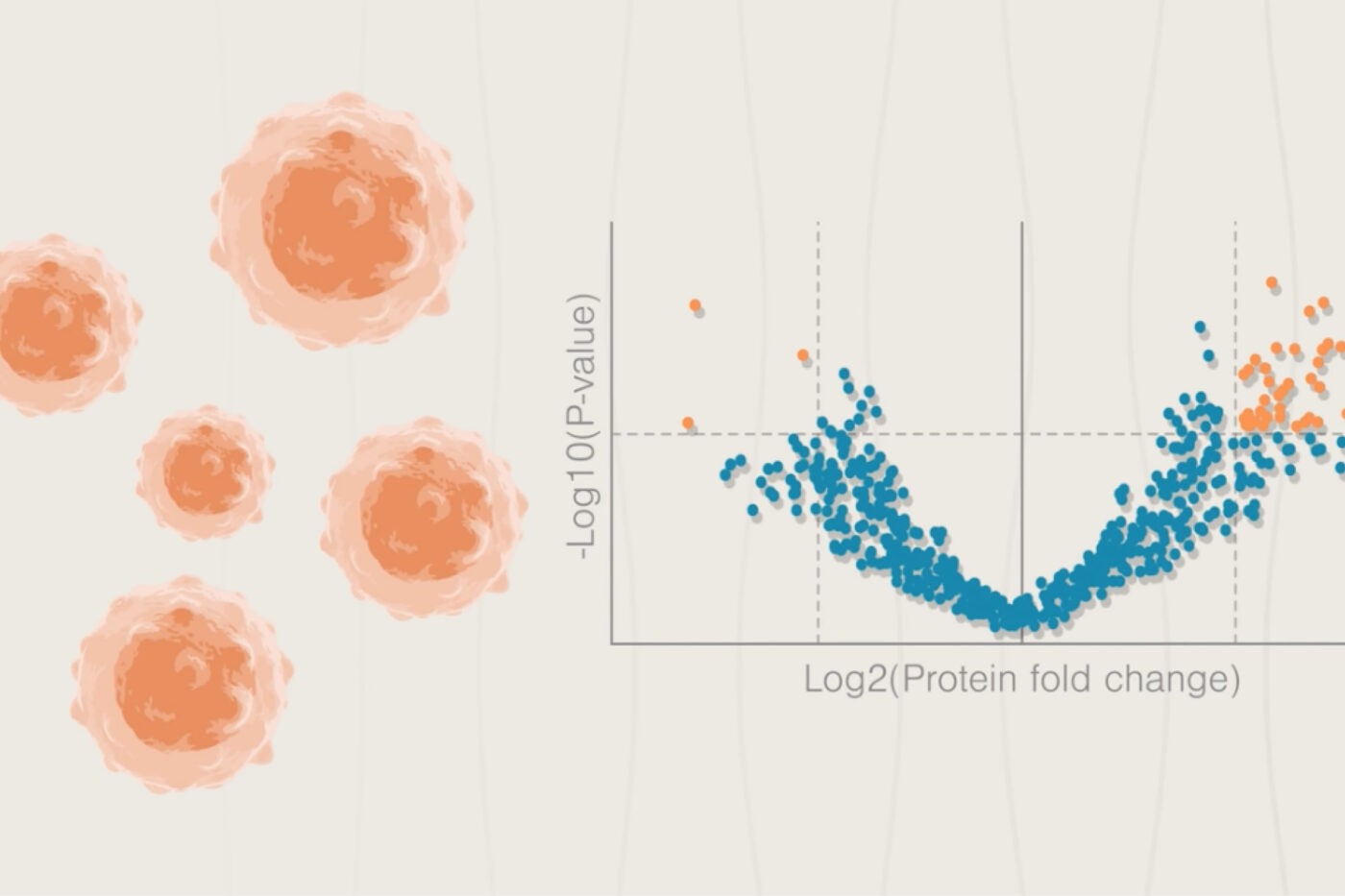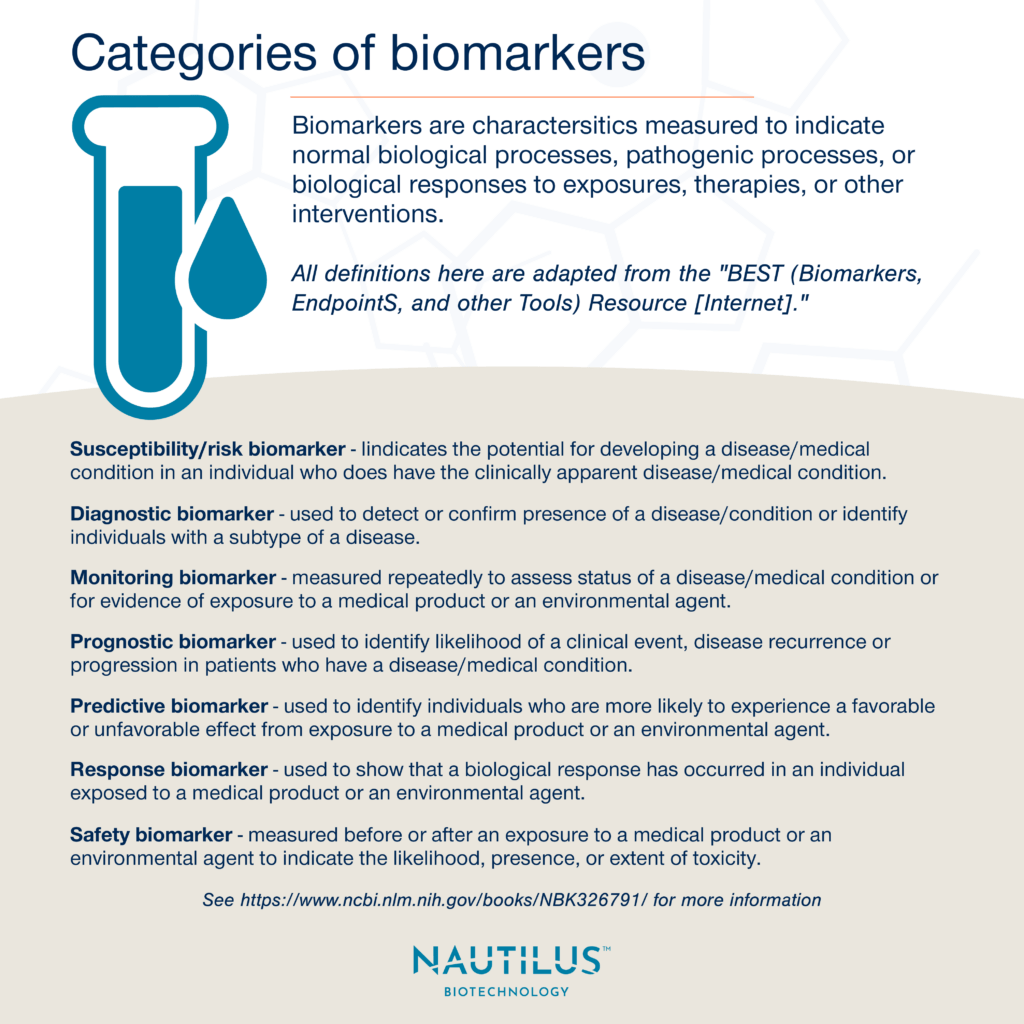Protein biomarkers are protein molecules that serve as indicators of specific processes or conditions inside an organism. They’re often used to diagnose disease, or monitored to watch the progress of a treatment. Finding these molecules is often the goal of various proteomics studies, and new proteomics technologies are poised to uncover even more protein biomarkers with diverse applications.
Biomarkers more generally are defined as physiological and biological signs that can be measured to assess both normal and abnormal biological processes. This term encompasses a wide spectrum of medical signs, ranging from blood pressure and body temperature to genetic mutations and specific proteins.
Doctors rely on biomarkers to guide diagnoses and prescribe a treatment plan, yet existing biomarkers only make up a fraction of possible indicators of disease. Underneath the recognizable signs of disease, there is a plethora of molecular interactions. Uncovering these interactions is the goal of protein biomarker discovery, which often entails using one or several proteomics technologies.
Protein biomarkers can play a role both in the mechanisms underlying disease and as a way of signaling the presence of disease. Identifying these protein biomarkers weeks, months, or even years before physical symptoms manifest has become a valuable area of research for diagnostic and treatment purposes. This post explores the immense potential of protein biomarkers in healthcare and how the Nautilus Proteome Analysis Platform is designed to enable unprecedented progress in protein biomarker discovery and research.

Applications of protein biomarkers in research and diagnostics
Protein biomarkers already have an established role in the development of therapeutics and diagnostics. Acute inflammation can be detected by measuring levels of C reactive protein in the blood, and Carcinoembryonic Antigen (CEA) can indicate the presence of colon cancer in some patients. These proteins help doctors narrow in on the cause and progression of disease, while also evaluating response to treatment.
Looking more closely at the molecular levels of various protein biomarkers helps alert doctors to the presence of disease before recognizable symptoms emerge while also reducing ambiguity surrounding underlying causes of certain symptoms. In diseases such as cancer where early treatment is crucial, there is a major focus on identifying biomarkers that signal the presence of malignant cells before they grow into a noticeable lump or travel to new tissue. Recent studies using proteomics to assess various kinds of cancer have uncovered potential protein biomarkers for lung cancer, breast cancer, and other cancer types. Other proteomics studies are applying protein biomarker discovery to neurological diseases like Alzheimer’s.
For several diseases, like Amyotrophic Lateral Sclerosis (ALS), where no test exists to provide a definitive diagnosis, and disease symptoms mimick other neurodegenerative diseases, protein biomarkers have the potential to finally provide patients with answers.
Beyond diagnostics, protein biomarker discovery can play a role in understanding the molecular workings behind the progression and symptoms of disease by uncovering a variety of pathways and molecules that may be attractive therapeutic targets. Protein biomarkers can also be used to understand why some individuals respond to certain therapies better than others, allowing for the creation of more effective treatment plans.
If protein biomarkers are a key to early detection, diagnosis, and treatment, then why haven’t we uncovered a biomarker for every human disease? It is certainly not for lack of effort.
Learn more about the intersection of biomarkers and proteomics in this episode of the Translating Proteomics podcast
Current protein biomarker discovery methods and challenges
For biomarker discovery, researchers often compare a healthy control group to a disease group, digging into the distinct differences in DNA, RNA, metabolites, and proteins. For protein biomarkers, this phase is characterized by the identification and quantification of as many proteins as possible, often using broadscale proteomics approaches, to propose a range of biomarker candidates. Protein biomarkers have predominantly been investigated through mass spectrometry, a proteomics technique utilized for the identification and quantification of proteins. The possible biomarkers are then subjected to a gauntlet of analytical and clinical validation to ensure sensitivity, reproducibility, and association with the endpoint of interest (see Fang-Shu Ou et al. 2021 for a thorough overview of the biomarker validation process).
Several challenges face the current field of biomarker discovery. While mass spectrometry has been a powerful proteomics tool for many years, it has difficulty detecting low abundance proteins in a sample. In blood for instance, 97% of the plasma protein mass is made up of the 20 most abundant proteins, often drowning out low abundance proteins in mass spectrometry analysis. These low abundance proteins and their modifications make up a valuable source of potential protein biomarkers that are beyond reach.
Mass spectrometry’s high degree of difficulty also makes the proteome analysis required for protein biomarker discovery an arduous task that struggles to reveal the whole picture. Because of this, the biomarker discovery phase often compares a limited number of samples that may not be truly representative (see Nakayasu et al 2021 for a review of mass spectrometry in biomarker discovery).
To advance protein biomarker discovery, we first must ensure that we have the methods to capture all the proteins and proteoforms that may be involved with disease.
Revolutionizing biomarker discovery with Nautilus’s Proteome Analysis Platform
The Nautilus Proteome Analysis Platform may be the exact tool needed to ignite breakthroughs in biomarker discovery. This proteomic analysis platform is designed to identify and quantify proteins and proteoforms in a mixed sample at the single-molecule level, transcending prior limits to sensitivity and proteome coverage.
Rather than hoping a useful biomarker is detected in the fragments of the proteome analyzed, the Nautilus Platform is designed to identify and quantify more than 95% of all proteins in the proteome, uncovering biomarker candidates that may have been missed using traditional methods. In addition, we’re designing a simple workflow from sample prep to data analysis that may enable more samples to be examined. We hope this will create robust proteomic datasets and more comprehensive comparisons between control and disease cohorts. This process will likely lead to more significant protein biomarkers being discovered, improving diagnostic and therapeutic strategies.
We’re working to drive a proteomics revolution — reshaping how we research, detect, and treat human disease. Protein biomarker discovery is just one of the many ways in which technological breakthroughs in proteomics can benefit human health. Explore some of the other applications of proteomics — spanning from precision medicine to basic research — in our white paper series.
Check out this animation to discover how proteomics can drive cancer research
MORE ARTICLES



